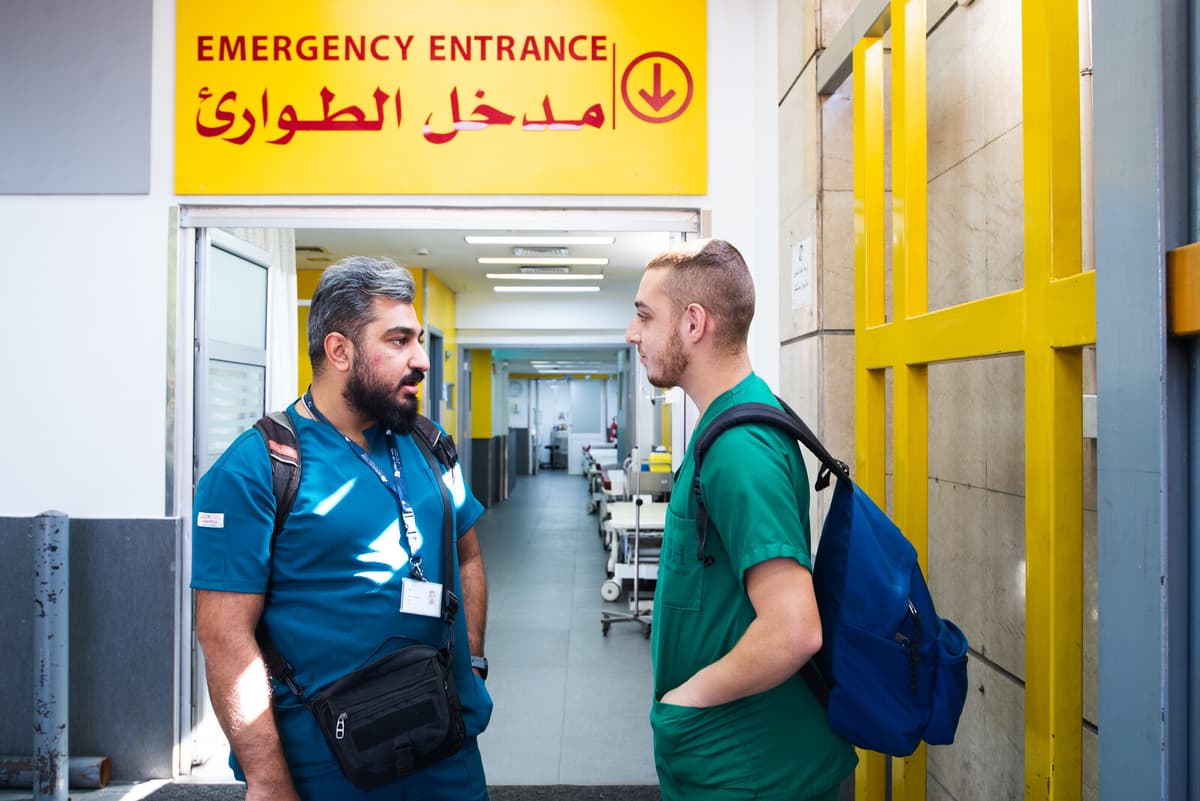It was a normal day at Sahel Hospital in southern Beirut. About 30 patients were there for dialysis, and a dozen others were being treated for acute injuries. But then Israel's accusations began to spread: Hezbollah was storing hundreds of millions of dollars in cash and gold in tunnels under the hospital.
We thought it was a joke at first. It was a huge shock. We care for patients, there's no money here, it's a lie, says Mariam Hassan, head of the emergency department.
The staff dared not stay due to fear of Israel striking the building. Within a quarter of an hour, they had evacuated the hospital. There weren't enough ambulances, so they drove away with patients in their own cars.
We didn't have time to think. We quickly gathered the sick and the staff. We've seen what they've done elsewhere and didn't trust that the same thing wouldn't happen here, says Mariam Hassan.
Empty Operating Rooms
No attack came. But over 50 other hospitals and clinics have been damaged in Israeli attacks, according to Lebanese health authorities. The attacks have forced many of them to close. Sahel Hospital was one of the few still receiving patients in the area. Now the operating rooms are empty.
We never expected to become a target, says anesthesiologist Muhammad Abbas.
Since Israeli forces began their heavy bombardment of Beirut a month ago, he and the rest of the staff have been sleeping on blue plastic sofas at the hospital to avoid being hit by rockets on their way to work.
A few minutes' drive away lies Lebanon's largest public hospital, Rafik Hariri. Just meters from the hospital, a multi-story residential building has been completely leveled.
"Bombing Often a Second Time"
Rescue workers are digging for bodies in the rubble. In the past year, 163 rescue and healthcare workers have been killed in Israeli attacks, according to Lebanon's health minister – most of them in recent weeks.
Israel often bombs a second time as soon as we arrive at a location, says Ali Safieddin.
He is the head of the Lebanese government's civil defense in the city of Tyre. They rush out to put out fires and evacuate the injured as soon as they receive an alarm about a new attack. But they often get hit themselves. As their work has become increasingly dangerous, Safieddin has adapted his team's approach. He sends out three people instead of four in the fire trucks – then some will survive if they are attacked.
On his arm, he has tattooed an image of a girl with big eyes. During the 2006 war, Ali Safieddin had brought his family to the rescue station, thinking it would be protected from Israel's attacks. A few hours later, a bomb struck, and he lost his 18-month-old daughter.
Top Chief Killed
Now he no longer trusts that the station is safe. A couple of weeks ago, the top rescue chief in the area was killed in an Israeli attack. Ali Safieddin continues despite the risks.
The population relies on us, we can't stop, he says.
The World Health Organization (WHO) is warning that hospitals and healthcare personnel are under attack in Lebanon.
Nearly 100 health facilities in southern Lebanon have been forced to close due to Israeli airstrikes and ground operations. Israel's bombings have also caused many doctors and healthcare personnel to flee.
UN's coordinating body Unocha reports that Lebanese ambulances and aid centers have been targeted in the war.
Lebanon's public health minister Firass Abiad has condemned Israel for attacking rescue personnel and civilians, saying that Lebanon's healthcare system is on the brink of collapse. Lebanon's fragile healthcare system has been weakened by years of economic crisis.






